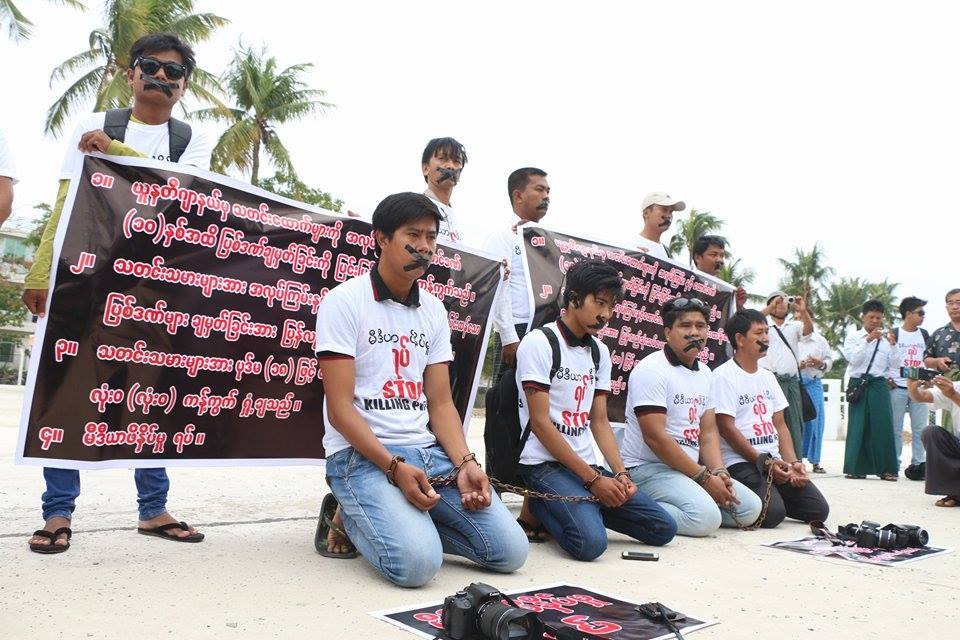The US and UK governments have expressed concerns over the recent jailing of the Unity Weekly journalists, reiterating that press freedom is vital to the democratic transition that Burma has pledged to undertake.
Four reporters and the CEO of Unity Weekly news journal were sentenced to ten years in prison with hard labour on 10 July under the Official Secrets Act after they published a story about an alleged chemical weapons factory in Magwe Division. Since the verdict was announced, local and international media and press advocacy groups have roundly condemned the sentencing, saying that the court’s verdict is a clear sign that Burma is backtracking on its promised democratic reforms.
Jen Psaki, a spokeswoman for the US State Department, said on Friday during a press briefing in Washington D.C. that the sentence sends “the wrong message about Burma’s commitment to freedom of expression”.
“The Burmese government has made tremendous progress in the last three years working to develop an environment conducive to free, fair, independent media,” Psaki said. “This is a critical element of a vibrant and well-functioning democracy, and we urge the government of Burma to continue that trend and respect the right of all journalists.”
Her comments came two days after the Associated Press reported that Assistant US Secretary of State Tom Malinowski said that while concerns over journalistic ethics and irresponsible reporting in a fledging media environment like Burma’s is a legitimate issue, “the way to deal with those problems is not through the tactics of a police state”.
“If your response is to arrest journalists, we are going to go back to the kind of relationship between Burma and the rest of the world that is not in your interests,” he warned.
The British ambassador to Burma, Andrew Patrick, took a softer approach on 16 July during a speech at the launch of the British Chamber of Commerce, choosing instead to stress the importance of media freedom.
“Freedom of the media is an absolutely essential part of democratisation and an essential part of democracy, and I know that all of this country’s friends abroad watch very closely on the developments on media freedom,” Patrick said. “I just wanted to take the opportunity today to say I know a lot of them and I myself are concerned about the recent developments that have been, and we are going to continue to follow this very, very closely.”
[related]
In a 19 July statement, the opposition National League for Democracy (NLD) party condemned the ruling Union Solidarity and Development Party for the sentencing, as well as the government’s increased scrutiny towards the media.
Recently, the police’s Special Branch department have visited and interrogated private news organisations on their finances, an act that most media outlets consider to be a tactic of intimidation. In addition, five journalists from Bi-Mon Te Nay journal have been charged with causing public alarm for a recent story falsely reporting that NLD leader Aung San Suu Kyi and ethnic leaders were appointed to an interim government, while more than 50 journalists face charges of demonstrating without permission when they decided not to cover a recent event attended by Burmese President Thein Sein.
The NLD news and information department spokesman Monywa Aung Shin said that these actions by the government show that the ruling party is intensifying suppression of the media ahead of the 2015 national elections.



